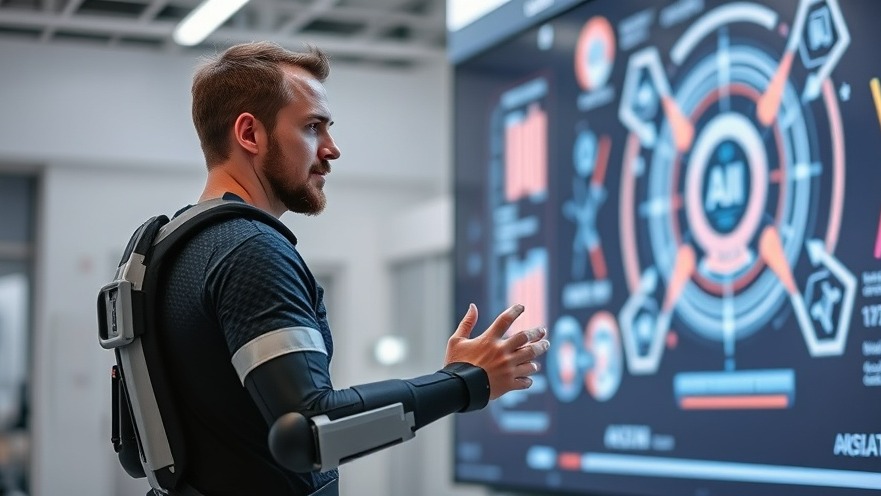
Harnessing AI to Revolutionize Muscle Strength and Support
In today's rapidly evolving healthcare landscape, practitioners are increasingly recognizing the invaluable role technology plays in augmenting human capability. German Bionic's Exia, a cutting-edge exoskeleton powered entirely by Augmented AI, represents a significant leap in wearable tech, specifically designed to enhance physical productivity across multiple industries, including healthcare. For concierge health practitioners, understanding these innovations is key to integrating sustainable solutions to improve patient outcomes and their own practices.
Empowering Healthcare with Strength and Adaptability
The Exia exoskeleton distinguishes itself by offering up to 84 lbs. (38 kg) of dynamic lift assistance, redefining what physical support means. This capability is especially relevant for healthcare providers who frequently assist patients with mobility challenges. The adaptive lift engine intelligently learns each user’s movements, allowing for tailored support when lifting or helping patients rise from beds and chairs, thus reducing the risk of injury for both practitioners and patients alike.
Combatting Industry Challenges with Advanced Technology
German Bionic's exoskeleton addresses major challenges in healthcare, including musculoskeletal disorders, which, according to recent statistics, cost healthcare organizations thousands of dollars per claim. By minimizing the strain placed on practitioners, Exia provides a mechanism to safeguard health while optimizing workflow and efficiency. Given the predictions of labor shortages in healthcare, solutions like Exia are essential not just for physical support but also for attracting and retaining talent by enhancing workplace safety and satisfaction.
A Smart Companion for Concierge Practitioners
The inclusion of the Smart Safety Companion and the German Bionic Connect App further empowers users, giving them the tools needed to monitor usage and adapt their support features directly from their smartphones. These integrations enable healthcare providers to maintain better oversight of their operational efficiency and encourage safe handling practices during patient interactions. The real-time analytics and data-driven insights from these applications allow practitioners to make informed decisions regarding training staff and operational adjustments.
Future Trends: The Path Ahead for Wearable Technology
As healthcare continues to innovate, practitioners must remain attuned to how wearable technologies like the Exia can reshape their practices. In an era where patient-centered care is paramount, being equipped with tools that enhance both provider and patient experiences is crucial. The ability to leverage advanced AI infrastructure not only improves physical health and efficiency but ensures that practitioners can focus on what truly matters: their patients.
Unlocking New Opportunities for Growth
Embracing exoskeleton technologies such as Exia presents a unique opportunity for healthcare practitioners. Not only does this technology bolster physical capabilities, but it also positions practices to lead in the burgeoning healthcare sector by showcasing a commitment to innovation. By integrating AI-powered tools, practitioners can elevate their standard of care, making their services more desirable to patients who value innovative treatments.
In conclusion, understanding the implications of the Exia exoskeleton for healthcare is essential for practitioners looking to enhance their practice. As you explore how technology can augment your healthcare services, consider how investments in innovations like German Bionic's Exia could transform your approach and attract new patients. Stay ahead of the curve and integrate these advanced solutions to uplift your practice.
 Add Row
Add Row  Add
Add 






Write A Comment